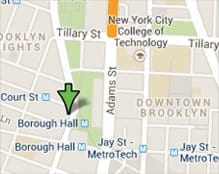New York’s white collar criminal uncertainty
Standing as the global hub of international business, it comes as no surprise that New York is also host to a number of white collar crimes. While nonviolent, white collar crimes typically involve the manipulation of finances and are usually committed by professionals in business and government. Although types of white collar crimes such as of forgery, embezzlement and falsifying business records can be serious, the legal repercussions that follow are often uncertain.
The infamous case of Martin Shkreli, which involved his indictment on federal charges of securities fraud, recently concluded with his conviction of two counts of securities fraud and and one count of conspiring to commit securities fraud. According to the New York Times, the investors that Shkreli was convicted of defrauding apparently did not lose any money. This result sparked debate, since other companies convicted of fraud in the past have had their convictions overturned, all because misstatements to obtain the contracts did not cause any harm. While Shkreli’s statements were not always truthful, jurors initially had to untangle what, exactly, constituted as “fraudulent intent.”
An article by the New York Post discusses why New York is the hot-spot for white-collar criminals. New York state has a Crimes Against Revenue Program, which intended to hold those who fail to pay tax obligations and other types of financial fraud accountable. However, CARP fines often work in favor of the criminal, wherein fines are levied against the corporate entity — resulting in a clean reputation for those involved. There are various factors at play in regards to the state’s general ambiguity toward such crimes, including those resulting from new technology.
Office Location
Neil S. Ruskin
188 Montague Street Suite 900
Brooklyn, NY 11201
Local: (718) 237-1547
Fax: 718-875-4011












